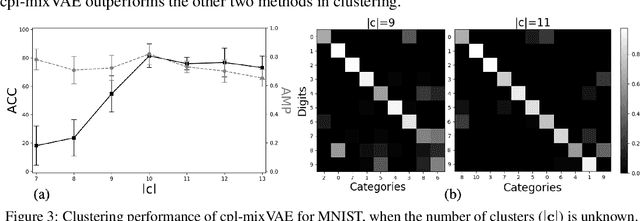Joint Learning of Discrete and Continuous Variability with Coupled Autoencoding Agents
Paper and Code
Jul 20, 2020



Jointly identifying discrete and continuous factors of variability can help unravel complex phenomena. In neuroscience, a high-priority instance of this problem is the analysis of neuronal identity. Here, we study this problem in a variational framework by utilizing interacting autoencoding agents, designed to function in the absence of prior distribution over the discrete variable and reach collective decisions. We provide theoretical justification for our method and demonstrate improvements in terms of interpretability, stability, and accuracy over comparable approaches with experimental results on two benchmark datasets and a recent dataset of gene expression profiles of mouse cortical neurons. Furthermore, we demonstrate how our method can determine the neuronal cell types in an unsupervised setting, while identifying the genes implicated in regulating biologically relevant neuronal states.
 Add to Chrome
Add to Chrome Add to Firefox
Add to Firefox Add to Edge
Add to Edge